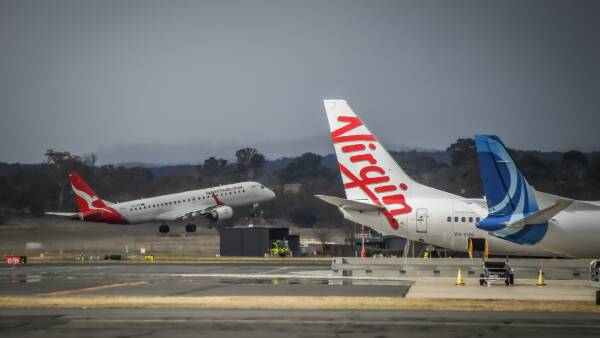
UPDATE: New reports confirm that the Canberra to Sydney flight route has become the most unreliable in Australia, with a staggering 10% of flights cancelled in July 2023. This alarming statistic marks a significant concern for travelers as the nation grapples with rising air travel disruptions.
The latest data from the Bureau of Infrastructure and Transport Research Economics reveals that Qantas led the cancellations, axing approximately 14% of its 429 scheduled flights on this route. Meanwhile, Virgin Australia cancelled 6% of its 263 scheduled flights. This trend highlights the growing frustration among passengers who rely on these flights for both business and personal travel.
Despite a slight improvement from the previous month’s cancellation rate of 12%, the July figures reflect a notable increase from last year’s 7%. These cancellations not only disrupt travel plans but also contribute to rising costs for passengers. The return leg from Sydney to Canberra recorded a 9% cancellation rate, making it the second worst in the country.
Opposition transport spokeswoman Bridget McKenzie expressed her outrage over the situation, stating, “This is an unreasonably high rate of cancellations as this route is clearly being used to plug holes in the network.” She called for the government to expedite its new slot management scheme for Sydney Airport, aimed at improving overall flight reliability.
Senator Katy Gallagher echoed these sentiments in a letter to Qantas CEO Vanessa Hudson, revealing the harsh impact on residents. Gallagher highlighted the exorbitant prices, such as a one-way economy flight costing her $634, making it nearly impossible for Canberrans to afford travel during peak parliamentary weeks. “Catching a bus is often more reliable and cheaper than flying,” she noted.
In terms of on-time performance, the July statistics show that only 77% of Canberra to Sydney flights arrived on time, with 78% departing as scheduled. Qantas flights had an even poorer performance, with only 70% arriving on time and 73% departing on time. In contrast, Virgin Australia’s performance was significantly better, achieving 86% on-time arrivals and 87% departures.
Nationwide, the on-time performance for flights in July was below long-term averages, with only 73% arriving and 74% departing on time. This trend raises serious concerns about the overall reliability of air travel across Australia.
As the situation continues to develop, travelers are urged to stay informed about flight statuses and consider alternative transportation options. The government’s response, particularly regarding the slot management scheme, will be a crucial factor in addressing these persistent issues.
Passengers and residents are left waiting for solutions as the summer travel season intensifies. The pressure is mounting on airlines to ensure that reliability does not take a backseat to profitability.






